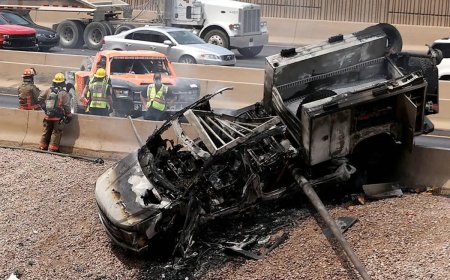How Newcastle Building Certifiers Ensure Safe Home Extensions

Extending your home is an exciting way to increase living space, enhance functionality, and add value to your property. However, navigating the complexities of building regulations and safety standards in Newcastle can be challenging without the guidance of a professional. This is where a building certifier NSW becomes invaluable. They play a vital role in ensuring your home extension meets legal, structural, and safety requirements.
This article explores the essential role of building certifiers in Newcastle when planning home extensions, provides insights into their services, and answers common questions homeowners may have.
Why You Need a Building Certifier for Home Extensions
A building certifier in Newcastle ensures that your home extension adheres to the Building Code of Australia (BCA) and complies with local council regulations. Their primary responsibilities include:
- Reviewing Plans and Documentation: Assessing architectural drawings, engineering plans, and specifications to ensure compliance with safety and structural standards.
- Site Inspections: Conducting on-site checks to confirm that construction is progressing according to approved plans.
- Issuing Certificates: Providing key documents such as Construction Certificates (CC) and Occupation Certificates (OC).
- Identifying and Mitigating Risks: Addressing potential safety issues early to avoid costly mistakes or delays.
Without the involvement of a qualified certifier, you risk legal issues, fines, or even demolition of non-compliant work.
How Building Certifiers Ensure Safe Home Extensions
1. Plan Approval and Compliance Checks
Before construction begins, a building certifier evaluates your plans to ensure they align with the Building Code of Australia, local zoning laws, and Newcastle-specific regulations. This step ensures that your extension is structurally sound, energy-efficient, and safe for occupants.
2. Safety Inspections During Construction
Certifiers conduct periodic site inspections at critical stages of construction, such as footing placement, framing, and final finishes. These inspections verify that the work meets approved standards and identify any deviations that require rectification.
3. Adherence to Fire Safety Standards
Home extensions must comply with fire safety regulations, particularly in bushfire-prone areas of NSW. Building certifiers ensure the use of fire-resistant materials, proper fire exits, and adherence to local fire safety codes.
4. Structural Integrity and Load-Bearing Checks
Certifiers assess whether the extension integrates seamlessly with the existing structure. They review load-bearing components, foundation strength, and roofing systems to ensure durability and safety.
5. Energy Efficiency Compliance
Building certifiers verify that the extension meets NSW energy efficiency requirements, including insulation, ventilation, and sustainable materials. This not only ensures compliance but also contributes to reduced energy bills for homeowners.
6. Final Certification for Occupancy
Once the extension is complete, the building certifier conducts a final inspection and issues an Occupation Certificate (OC) if all aspects of the build comply with regulations. This certificate is essential for legally occupying the new space.
FAQs
1. What is the role of a building certifier in Newcastle?
A building certifier ensures your home extension complies with the Building Code of Australia and local Newcastle regulations. They review plans, conduct inspections, and issue necessary certificates.
2. Can I use a private building certifier instead of the council?
Yes, in NSW, you can hire a private building certifier to streamline the approval process and receive personalized services.
3. Do I need a building certifier for all types of home extensions?
Yes, whether you’re adding a new room, extending a deck, or building a second story, a building certifier is required to ensure compliance with NSW laws.
4. How much does a building certifier cost in Newcastle?
The cost varies depending on the complexity and size of the project. It’s best to request a detailed quote from the certifier before starting the project.
5. What happens if my extension doesn’t meet regulations?
Non-compliance can result in fines, legal action, or even the removal of unauthorized work. A building certifier helps you avoid these issues by ensuring compliance at every stage.
Conclusion
When planning a home extension in Newcastle, engaging a professional building certifier in NSW is a critical step to ensure safety, compliance, and a smooth construction process. From reviewing your plans to conducting inspections and issuing certificates, their expertise guarantees that your project meets all legal and structural requirements.
Choosing the right building certifier not only protects you from potential risks but also ensures a stress-free experience, allowing you to focus on creating the home of your dreams. With their guidance, your home extension will not only enhance your living space but also add lasting value to your property.
Whether you’re extending your kitchen, adding a second floor, or creating a new outdoor area, a building certifier in Newcastle will provide the support and expertise you need for a successful and compliant project.
What's Your Reaction?



























































